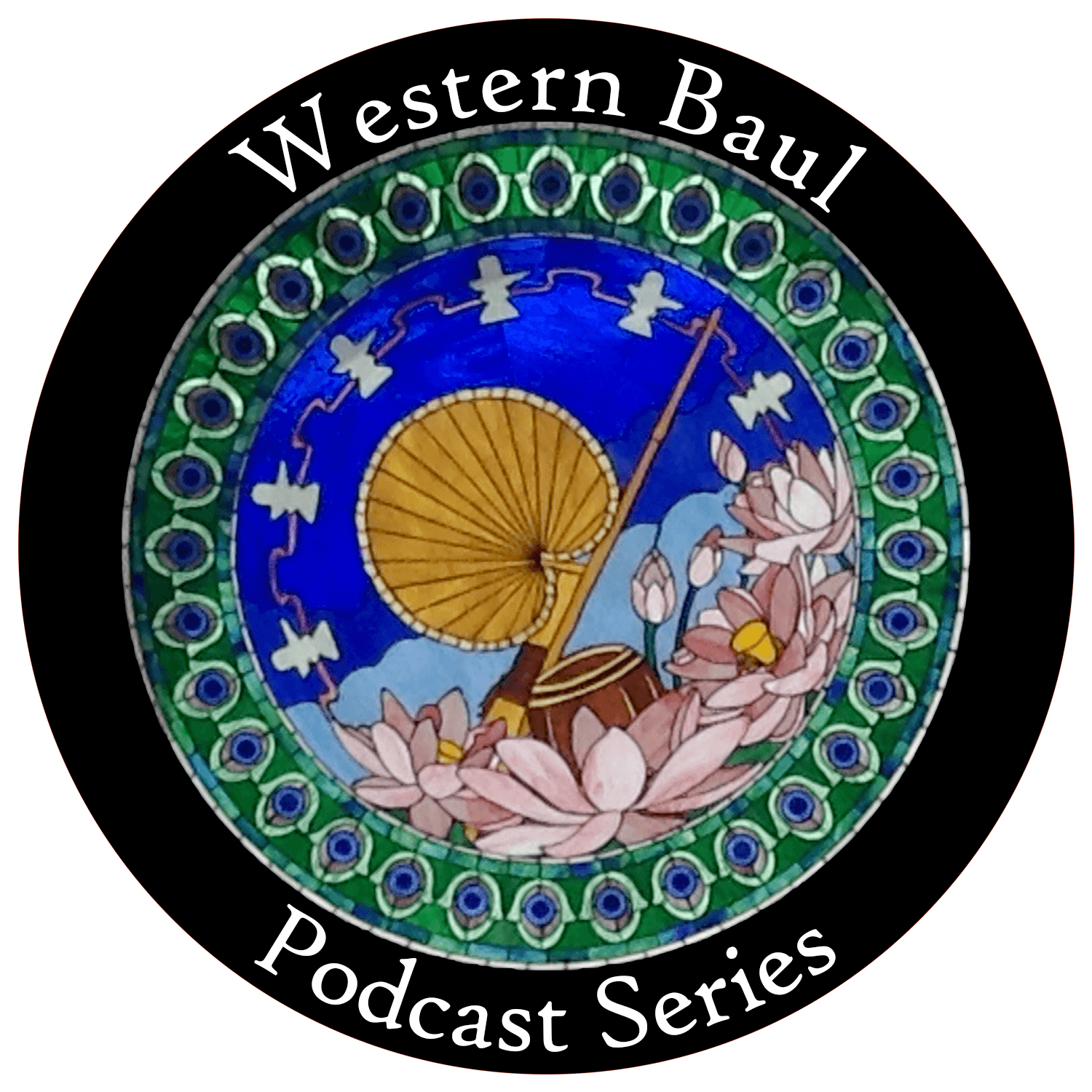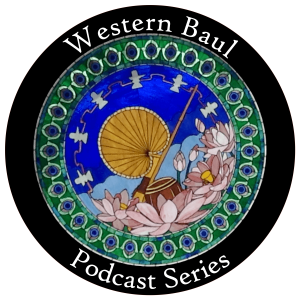
The Western Baul Podcast Series features talks by practitioners of the Western Baul path. Topics are intended to offer something of educational, inspirational, and practical value to anyone drawn to the spiritual path. For Western Bauls, practice is not a matter of philosophy but is expressed in everyday affairs, service to others, and music and song. There is the recognition that all spiritual traditions have examples of those who have realized that there is no separate self to substantiate—though one will always exist in form—and that “There is only God” or oneness with creation. Western Bauls, as named by Lee Lozowick (1943-2010), an American spiritual Master who taught in the U.S., Europe, and India and who was known for his radical dharma, humor, and integrity, are kin to the Bauls of Bengal, India, with whom he shared an essential resonance and friendship. Lee’s spiritual lineage includes Yogi Ramsuratkumar and Swami Papa Ramdas. Contact us: westernbaul.org/contact
Episodes

Thursday Feb 01, 2024
The Gospel of Thomas (David Herz)
Thursday Feb 01, 2024
Thursday Feb 01, 2024
The Gospel of Thomas was found in 1945 in a jar buried in the ground in a small Egyptian town, Nag Hammadi, in a region where monks had meditated in solitude. Its origin dates back to the first few centuries and possibly to the time of Christ. In the accepted Gospels of Matthew, Mark, Luke, and John, Jesus is presented as an utterly unique being or as the only begotten son of God. Thomas means twin in Latin. One interpretation of the Gospel of Thomas is that we are identical twins of Jesus at a deep level, children of God as he is without knowing it. Some find it not to be a gnostic text since it affirms the basic reality and sanctity of incarnate life which gnostics consider illusory. There were different communities of Essenes, Sadducees, and Pharisees at the time that Jesus lived. Jesus transmitted a lot of his teaching of spiritual truth through parable. The Gospels were originally spoken in Aramaic and translated into Greek. The Nag Hammadi texts are written in Coptic, a language descended from ancient Egyptian. So, the Gospel of Thomas, which contains 114 logia or sayings attributed to Jesus, has undergone translation. Several of them are discussed. In the first, he states that whoever discovers the meaning of the sayings will not taste death. It is assumed that Jesus did not mean we are not going to leave the body—he meant something else. If Jesus had wanted to be clear and literal, he would not have spoken this way. The second logion says that those who seek should seek until they find and when they find they will be troubled and will reign over all. The Gospel of Thomas contains nondual teaching—the kingdom is within and without. We can reflect on the sayings, make them our own and open to their meaning. David Herz is a spiritual practitioner who lives in Paris where he has been a journalist, technical writer, communications officer, and an English instructor at universities.

No comments yet. Be the first to say something!